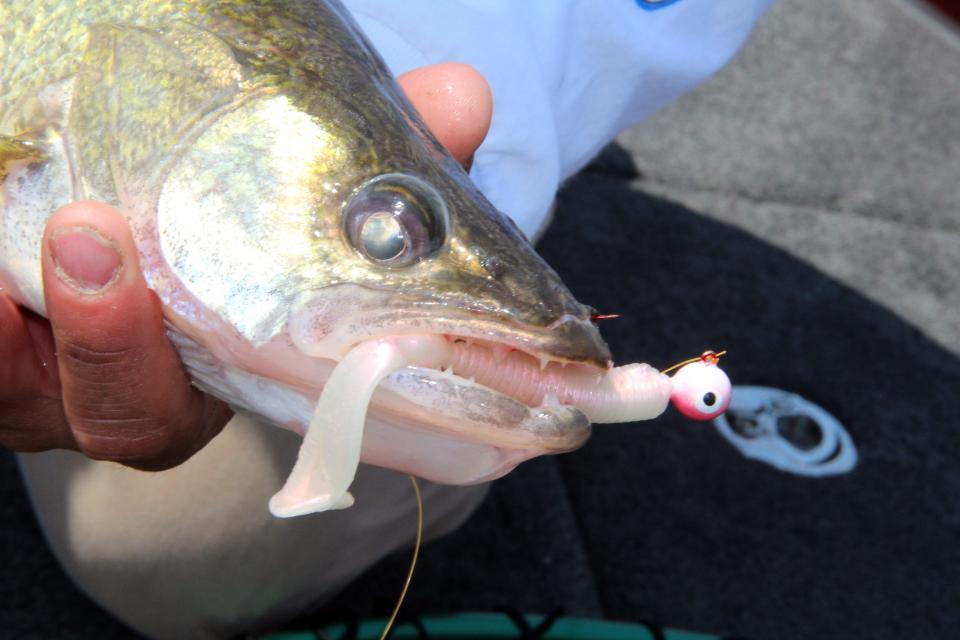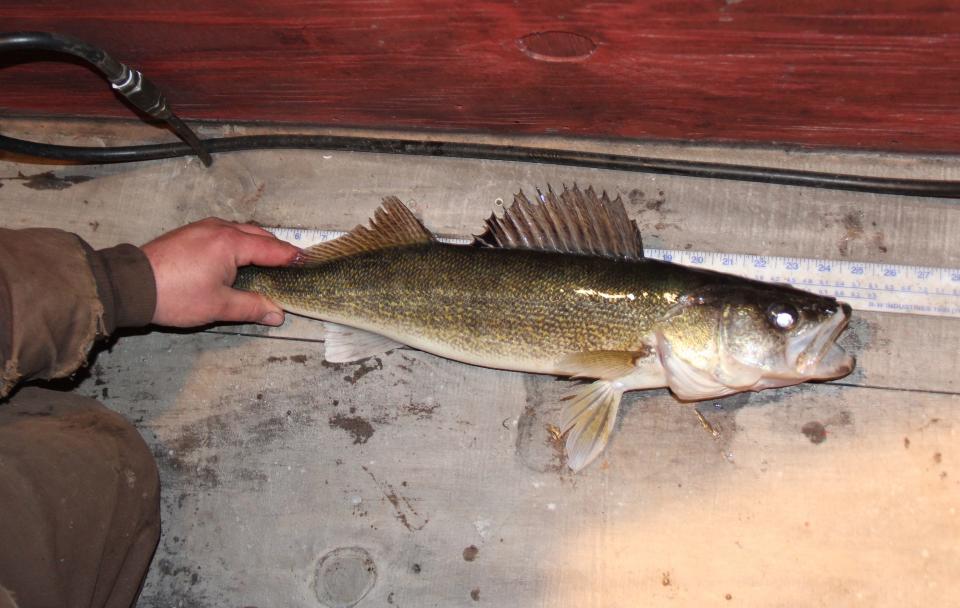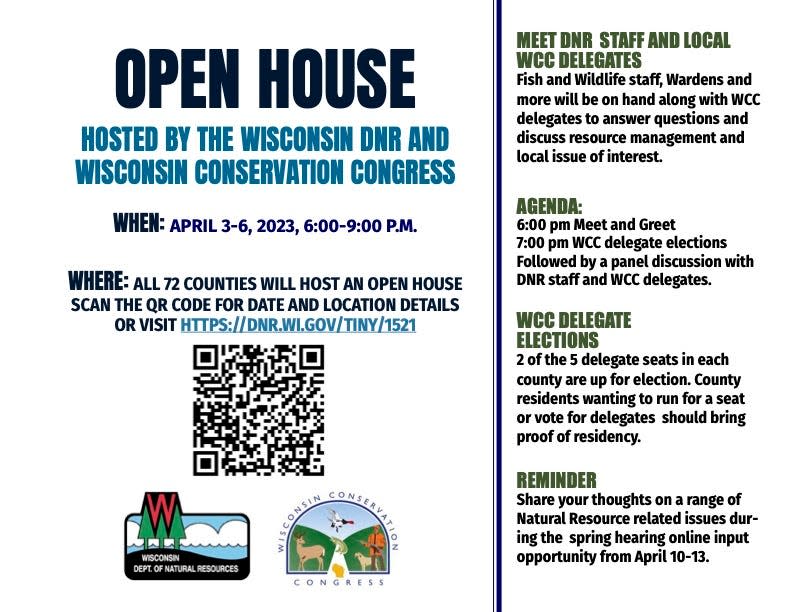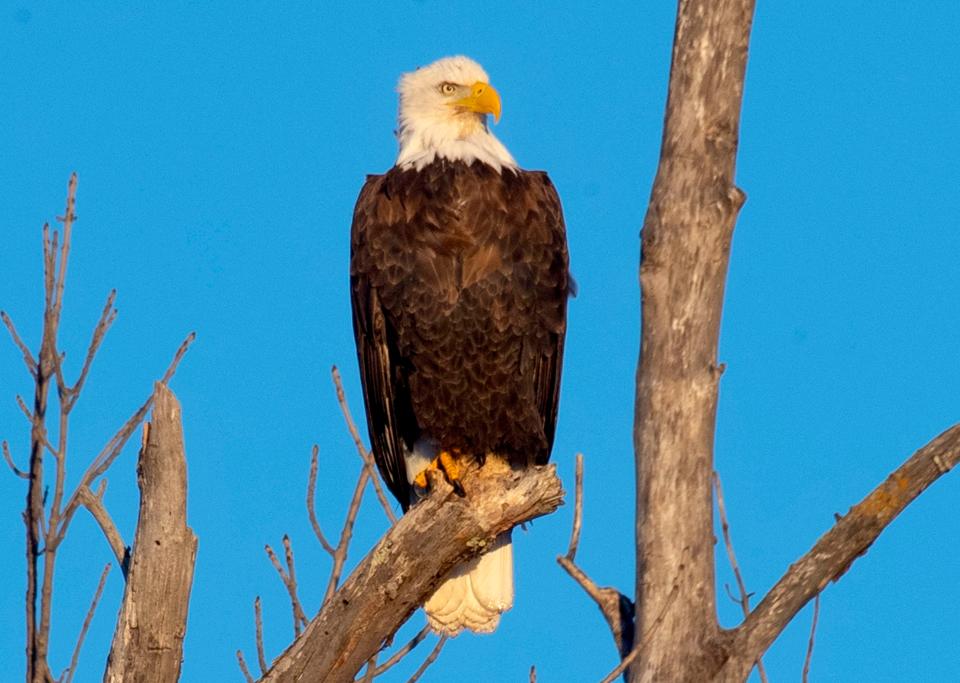Smith: What you need to know about revamped spring hearings

If you've been involved with the Wisconsin spring hearings process for the last 30 years, you've seen a lot of change.
That shouldn't come as a surprise. Think about how much differently we attend meetings or talk on the phone or share photos today from how we did in 1993.
So a new format has also come to the state's annual date with conservation democracy, formally known as the Department of Natural Resources Spring Hearings and Wisconsin Conservation Congress County Meetings.
The WCC dates to 1934 and is composed of local volunteers who serve as delegates in each of the state's 72 counties. It was created by the State Conservation Commission (the predecessor of the Natural Resources Board) to provide Wisconsin citizens with a local avenue for input and exchange on conservation issues.
In 1972 Gov. Patrick Lucey signed legislation (Statute 15.348) that legally recognized the WCC to ensure that citizens would have a liaison between the Natural Resources Board and the Department of Natural Resources.
More: Outdoors calendar
For most of its history the WCC and DNR held in-person public meetings in each county to elect local delegates and collect public input on conservation matters.
It was democracy in the raw and required a very public expression of opinion. Three decades ago I remember attending the Racine County spring hearings meeting and sitting amid a few dozen people on wooden bleachers at Union Grove High School and raising my hand (or not) to vote on questions.
The format could be intimidating to those who held minority views.
The WCC and DNR improved on that in the 2000s when it instituted paper ballots. Attendees then voted just as the public does in general elections in Wisconsin.
More change came in 2019 when, at the recommendation of a WCC-led committee, an online voting option was added. For the first time people would be able to offer input without traveling to a county meeting site.
The change proved extremely valuable and timely when the COVID-19 pandemic struck in 2020. For the last three years, the spring hearings input was held online only.
But it did not provide a way to hold elections for local delegates.

What's new in 2023?
With people gathering in groups again, the 2023 spring hearings will feature a hybrid format.
It will start with in-person "open houses" in each county. The meetings are scheduled April 3, 4 or 5; the WCC website includes details for each county meeting.
Among more populous counties, the Brown (Northeast Wisconsin Technical College. 2740 W. Mason Street. Green Bay), Milwaukee (Tommy G. Thompson Youth Center at State Fair Park in West Allis) and Waukesha (Waukesha County Technical College, 800 Main St., Pewaukee) open houses will be held April 3, while Outagamie (Appleton North High School, 5000 N. Ballard Rd., Appleton) will be April 4 and Winnebago (Webster Stanley Auditorium, 915 Hazel St., Oshkosh) will be April 5.
Doors will open at the county gatherings at 6 p.m. for a meet-and-greet period.
Then at 7 p.m. elections for local WCC delegates will be held. Immediately following the votes, DNR staff will provide a brief update on issues pertinent to the county and WCC delegates will provide an overview of their work and explain how the congress functions.

There will be an opportunity for questions and answers from the public following the panel discussion.
The open houses are scheduled to conclude by 9 p.m.
The second phase of the new format – voting on the 2023 questionnaire – will be held online only from noon April 10 to noon April 13 via the Wisconsin Conservation Congress Spring Hearing webpage.
As in the past, voting results are not binding but are used by the DNR as it considers rule changes or by legislators as an indication of public sentiment on issues.
The 2023 questionnaire will offer 28 DNR fisheries rules change proposals and one fisheries advisory question, nine DNR wildlife rules change proposals and 38 WCC advisory questions.
The DNR proposals were released to the public and presented to the NRB in January. They include a statewide daily bag limit of three walleye and expanding the youth deer hunt to four days.
The WCC advisory questions were released in February.
Among the list, the group's Deer and Elk Committee will attempt to gauge public preference for the state's firearm deer hunting season, including a 16-day firearm season with an earlier start followed by a 10-day muzzleloader season.

The WCC's Environmental Committee will present two questions related to lead poisoning in wildlife, problems which are particularly evident in common loons and bald eagles.
The first will ask if the public supports the WCC working with the DNR, the Natural Resources Board and the state legislature to implement a statewide ban on lead jigs and sinkers weighing 1 ounce or less. Such tackle is a leading cause of lead poisoning in loons, according to wildlife rehabilitators.
The second deals with lead poisoning in wildlife, often eagles, caused by the animals consuming lead bullet fragments in deer and other carcasses. It asks if the public would support the WCC and DNR working cooperatively with other conservation organizations to develop a statewide outreach program that increases the use of non-lead ammunition.
A local resolution will also be presented in eight counties, including Milwaukee, which will ask if the WCC and DNR should work with powerline companies to refrain from mowing during summer on powerline right-of-ways to help preserve wildlife habitat, including for monarch butterflies.
To view the 2023 spring hearings questions, visit dnr.wi.gov.
Our subscribers make this reporting possible. Please consider supporting local journalism by subscribing to the Journal Sentinel at jsonline.com/deal.
DOWNLOAD THE APP: Get the latest news, sports and more
This article originally appeared on Milwaukee Journal Sentinel: Wisconsin spring conservation hearings format revised for 2023

